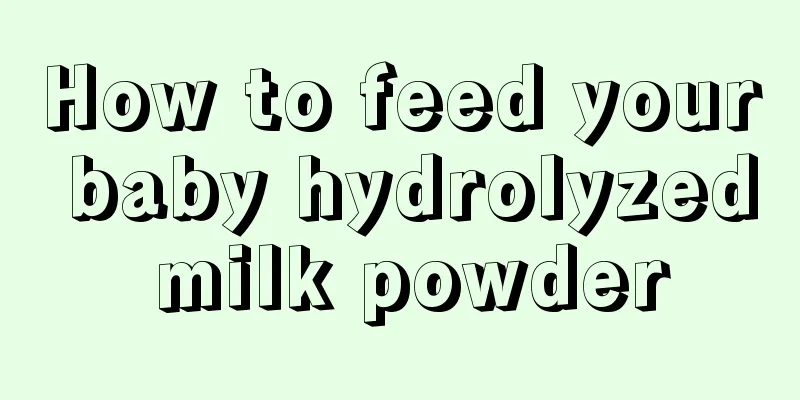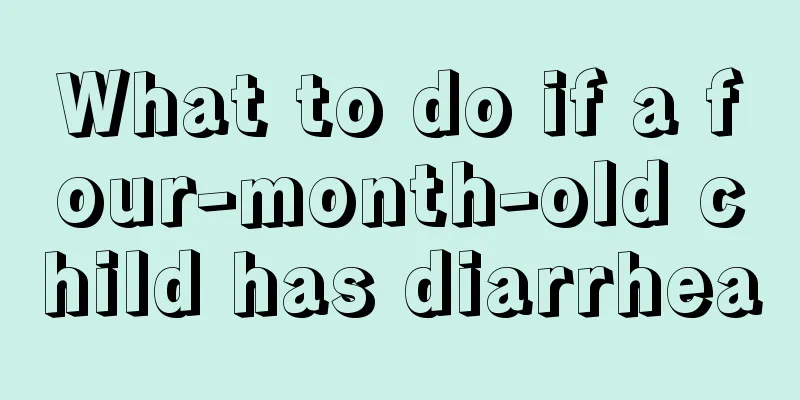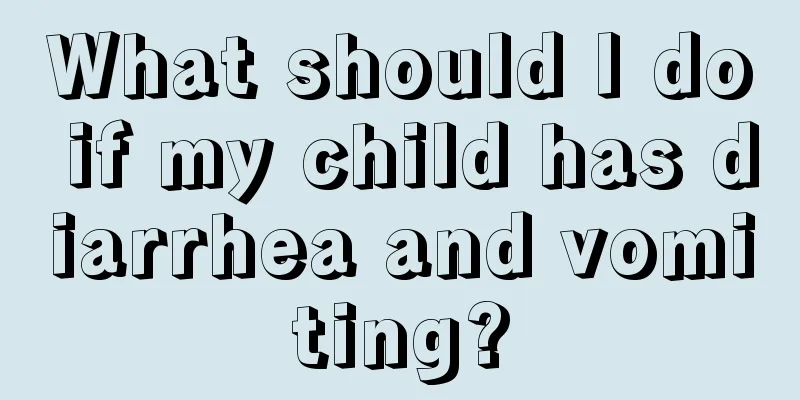How to feed your baby hydrolyzed milk powder

|
Nowadays, if the mother has no breast milk, the only option is to feed the baby with formula. There are some issues that require attention when feeding with formula milk. For example, the brand of milk powder, the concentration of milk powder, and the amount of water added to the milk powder. In short, it is also a problem that needs to be treated correctly because it involves the child's digestion of milk. Hydrolyzed milk powder is a popular type of milk powder at present, so how to let your baby eat hydrolyzed milk powder? Hydrolyzed milk powder has many functions. Hydrolyzed milk powder can effectively enhance the baby's gastrointestinal adaptability and prevent the baby from becoming irritable and crying. If your baby suffers from constipation or diarrhea, replacing regular milk powder with hydrolyzed milk powder can also ensure their normal bowel movements. Since babies have a high pH value in their stomach acid and are not very good at digesting protein, hydrolyzed milk powder can also effectively reduce the phenomenon of babies vomiting. Some babies may develop early atopic dermatitis and milk protein allergy. Hydrolyzed milk powder can effectively reduce the probability of babies suffering from eczema. Finally, hydrolyzed protein also helps your baby sleep. If breastfeeding is not possible for various reasons, mothers can choose suitable formula milk as a substitute for feeding. Based on the degree of protein completeness of infant formula milk powder on the market, we currently have roughly three types of formula milk powder, namely conventional formula milk powder, partially hydrolyzed protein formula milk powder (also known as moderately hydrolyzed formula milk powder) and special formula milk powder. Conventional formula milk is suitable for babies of different ages. Partially hydrolyzed protein formula milk is suitable for babies aged 0 to 1 year old with delicate intestines. Special formula milk is suitable for babies with milk allergies. When babies eat hydrolyzed milk powder, mothers need to master some methods. Hydrolyzed milk powder generally tastes slightly bitter, and the bitterness becomes more severe as the degree of hydrolysis increases. If the baby cannot accept the bitter taste, mothers can add a little infant sugar or glucose to the hydrolyzed milk powder for flavoring. If we want to convert hydrolyzed milk powder into ordinary milk powder for feeding, we can use the "mixing new and old" method. First, replace 1/3 of the hydrolyzed milk powder with ordinary milk powder to allow the baby to adapt for two or three days. Then replace 1/2 of the hydrolyzed milk powder with ordinary milk powder to allow the baby to adapt for two or three days. Then replace 2/3 of the hydrolyzed milk powder with ordinary milk powder to allow the baby to adapt for two or three days. Finally, completely replace the hydrolyzed milk powder with ordinary milk powder for feeding. Hydrolyzed milk powder can reduce baby's gastrointestinal discomfort, constipation, diarrhea, eczema and other symptoms, reduce baby's irritability, crying and spitting up, and help baby sleep better. According to the baby's physical condition and acceptance, we can choose appropriate formula milk for feeding. When the baby is eating hydrolyzed milk powder, we can add an appropriate amount of sugar for seasoning. If the milk needs to be changed, we can use the "mixing of new and old" method. |
<<: I still have diarrhea after taking deep hydrolyzed milk powder
Recommend
What to do if your baby coughs and vomits at night
Generally speaking, if a baby has symptoms of cou...
What to do if your three-year-old child has allergies
Children's resistance is weaker than that of ...
What ointment should be applied to baby eczema?
Infant eczema is very common in babies. Many moth...
What to do if children have dry lips
In autumn and winter, the weather is the driest. ...
What is the reason for the child's yellow hair
Many parents are facing the problem of their chil...
Treatment of cough and runny nose in eight-month-old baby
We all know that many people have experienced eig...
What should I do if my child has a sore throat?
The health of the throat has a great impact on li...
Side effects of hormone medication for children
Everyone has a certain understanding of hormone d...
Superstitious methods for children crying at night
Children's physical development is not yet co...
What is the reason why children don't grow taller?
Parents will naturally worry if their children do...
How to treat dry eczema in children?
It is also common for children to have dry eczema...
What is the reason for the baby's teeth growing quickly?
As the baby grows and develops day by day, decidu...
The tumor of "Little Fatty" should not be ignored
The latest statistics from the Cancer Hospital sh...
Three and a half year old boy speaks unclearly
The growth process of each child is different. So...
What should I do if my baby has stomachache at night?
Many parents will encounter the situation that th...









